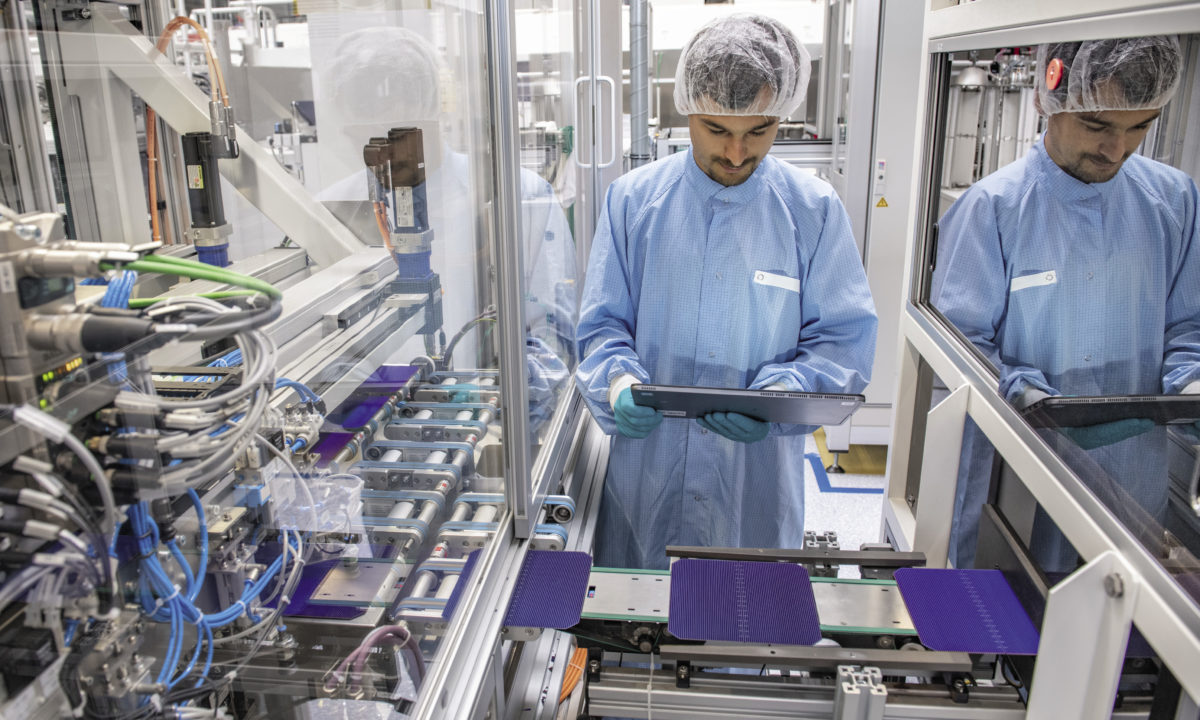From pv magazine Germany.
The days of Meyer Burger Technology AG as a photovoltaic production equipment provider are numbered. The Swiss technology group announced on Friday that it wants to transform itself into a leading manufacturer of solar cells and solar modules. The board of directors has therefore convened an extraordinary general meeting on July 10. The shareholders will consider approving a capital increase with planned gross proceeds of CHF165 million ($174 million).
With the proceeds from the capital increase, Meyer Burger wants to build up production capacities and sales organizations. With the planned takeover of existing production sites in Germany, the company is saving significant time and money. However, Meyer Burger has not explained which locations it will take over.
The company plans to start production in the first half of 2021 and gradually expand over the following years. It wants to start with a capacity of 400 MW per year. By 2022, capacity should be further expanded to 1.4 GW for solar cells and 800 MW for modules. In the long term, production volumes of 5 GW per year are targeted. Currently, there are even potential incoming orders from customers in Europe and the USA with a volume of more than 2 GW per year for the heterojunction modules.
“The next step in technology is comparable to the transition from 4G to 5G in mobile communication,” said CEO Gunter Erfurt. “Only Meyer Burger has brought the 5G technology of the PV industry to market maturity. We can be on the market with our products in just one year. Our manufacturing in Europe is competitive and has significant profit potential.”
The management had already presented their plans to set up large-scale production at the ordinary general meeting in mid-May. Meyer Burger wants to rely on its patented heterojunction & smartwire technologies, which the company has continuously developed in recent years. “The reason for this fundamental change of direction is the realization that Meyer Burger has not been able to make a profit from its technological leadership in recent years,” the company said.
Meyer Burger said that it would now produce machines for heterojunction / smartwire manufacturing exclusively for its own use. By simultaneously building up its own production capacities for the production of solar cells and modules, the entire added value remains at Meyer Burger. To protect the know-how, it will no longer share future improvements in production facilities with third parties. Only the business with standard equipment and the service area should continue unchanged.
With the decision to become a photovoltaic manufacturer, the company will also end its collaboration with REC. “Unfortunately, Meyer Burger could not enter into a mutually beneficial cooperation with REC in due course, as REC had not been able to fulfill the commitments of the mutual declaration of intent until now,” was the reason this strategic option was no longer being pursued. Meyer Burger will continue to hold its stake in perovskite startup Oxford PV in order to secure an expansion of the innovation potential through the combination of heterojunction and perovskite technology.
This content is protected by copyright and may not be reused. If you want to cooperate with us and would like to reuse some of our content, please contact: editors@pv-magazine.com.




3 comments
By submitting this form you agree to pv magazine using your data for the purposes of publishing your comment.
Your personal data will only be disclosed or otherwise transmitted to third parties for the purposes of spam filtering or if this is necessary for technical maintenance of the website. Any other transfer to third parties will not take place unless this is justified on the basis of applicable data protection regulations or if pv magazine is legally obliged to do so.
You may revoke this consent at any time with effect for the future, in which case your personal data will be deleted immediately. Otherwise, your data will be deleted if pv magazine has processed your request or the purpose of data storage is fulfilled.
Further information on data privacy can be found in our Data Protection Policy.